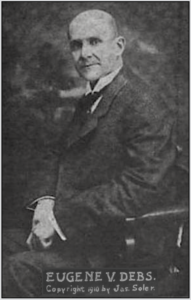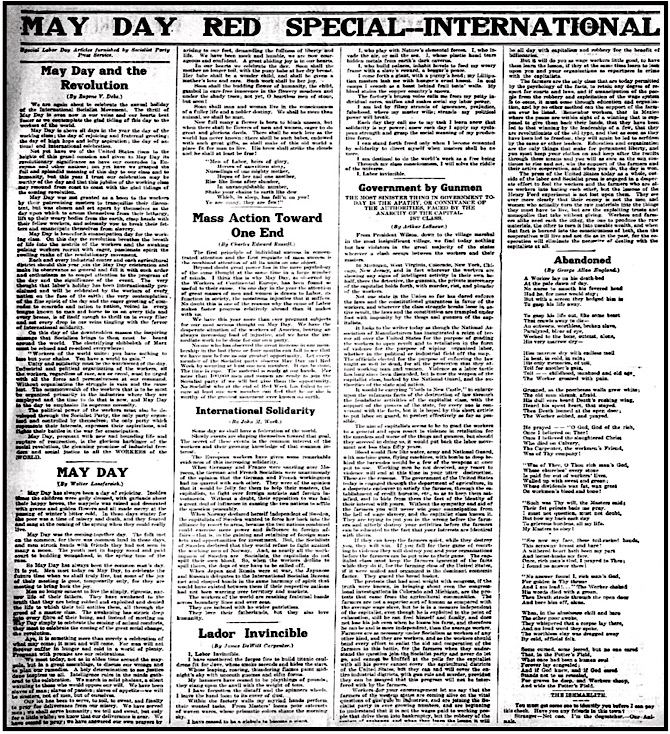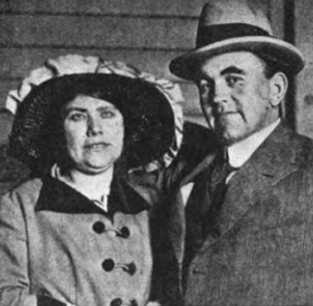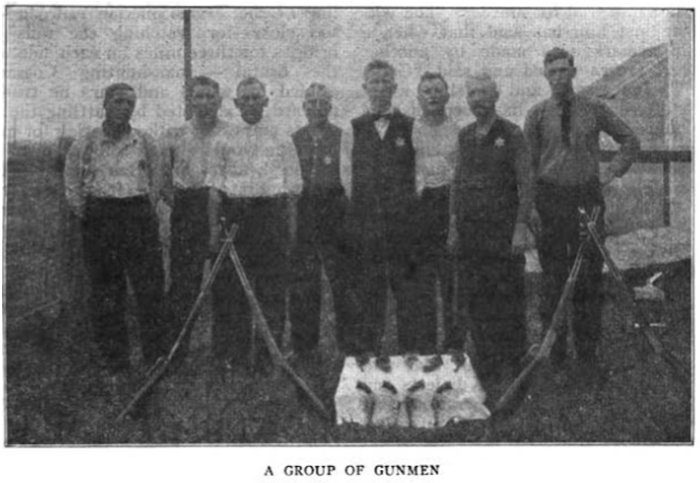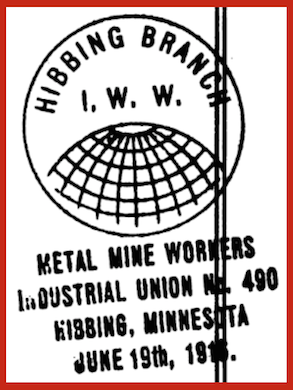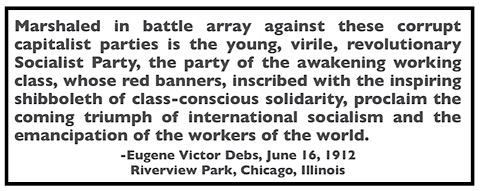 —————
—————
Hellraisers Journal – Friday May 1, 1914
“May Day and the Revolution” by Eugene V. Debs
From The Goltry News (Oklahoma) of May 1, 1914:
May Day and the Revolution
(By Eugene V. Debs.)
We are again about to celebrate the annual holiday of the International Socialist Movement. The thrill of May Day is even now in our veins and our hearts beat faster as we contemplate the glad tiding of this day to the workers of the world.
May Day is above all days in the year the day of the working class; the day of rejoicing and fraternal greeting; the day of high hope and lofty aspiration; the day of national and international celebration.
Not yet have we of the United Stales risen to the heights of this grand occasion and given to May Day its revolutionary significance as have our comrades in European and other nations; not yet have we grasped the full and splendid meaning of this day to our class and to humanity, but this year I trust our celebration may be worthy of the day and that this jubilee of the working class may resound from coast to coast with the glad tidings of the coming revolution.
May Day was not granted as a boon to the workers by their patronizing masters to tranquilize their discontent, but was chosen and set apart by themselves as the day upon which to arouse themselves from their lethargy, lift up their weary bodies from the earth, clasp hands with their fellow workers, and solemnly vow to break their fetters and emancipate themselves from slavery.
May Day is henceforth emancipation day for the working class. On this day the revolution breathes the breath of life into the nostrils of the workers and the awaking pulsing workers recruit with eager, passionate spirit the swelling ranks of the revolutionary movement.
Each and every industrial center and each agricultural district should this year join the May Day celebration and make its observance so general and fill it with such ardor and enthusiasm as to compel attention to the program of the day and the significance of the event. The very thought that labor’s holiday has been internationally proclaimed and will be celebrated by the workers of every nation on the face of the earth; the very contemplation of the fine spirit of the day and the eager greeting of comrades to comrade and nation to nation, voiced in every tongue known to man and borne to us on every tide and every breeze, is of itself enough to thrill us in every fiber and set every drop in our veins tingling with the fervor of international solidarity.
On this day of the downtrodden masses the inspiring message that Socialism brings to them must be heard around the world. The electrifying shibboleth of Marx must be echoed and re-echoed everywhere:
“Workers of the world unite: you have nothing to lose but your chains. You have a world to gain.”
Unity and solidarity must be the watchword of the day. Industrial and political organization of the workers, all the workers, regardless of race, sex or creed, must be urged with all the force and persuasiveness at our command. Without organization the struggle is vain and the cause lost. The commonwealth of the workers that is to be must be organized primarily in the industries where they are employed and the time to do that is now, and May Day is the day to emphasize its supreme necessity.
The political power of the workers must also be developed through the Socialist Party, the only party organized and controlled by themselves; the only party which represents their interests, expresses their aspirations, and fights their battles in the war for emancipation.
May Day, pregnant with new and bounding life and rapture of resurrection, is the glorious harbinger of the social revolution, the gleaming promise of industrial freedom and social justice to all the WORKERS of the WORLD.
[Photograph of Debs and emphasis added.]
Continue reading “Hellraisers Journal: “May Day and the Revolution” by Eugene Victor Debs”

